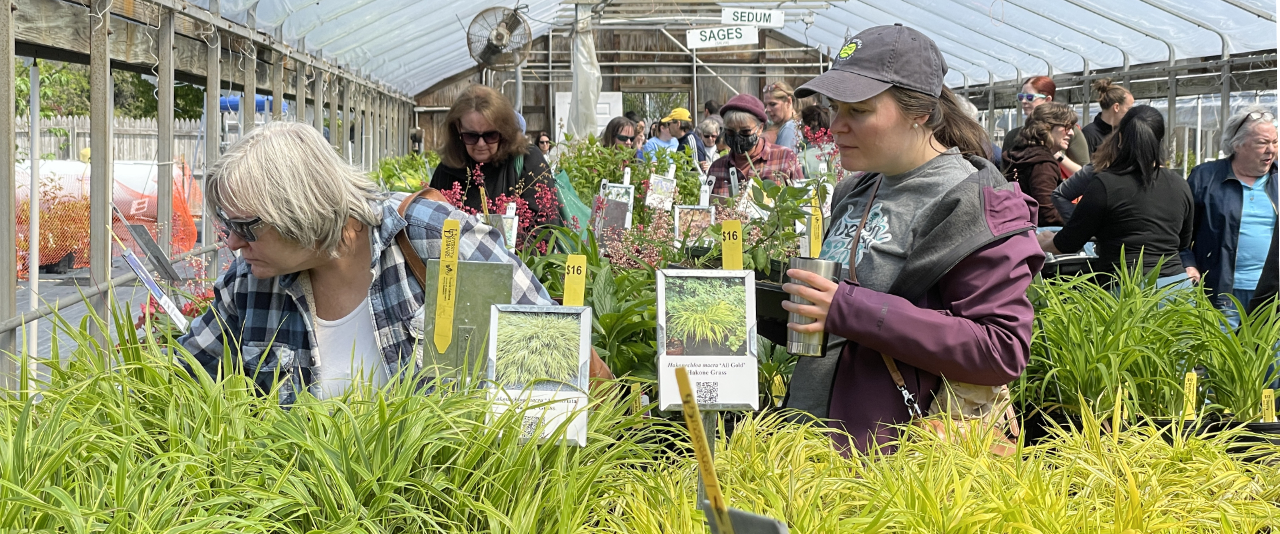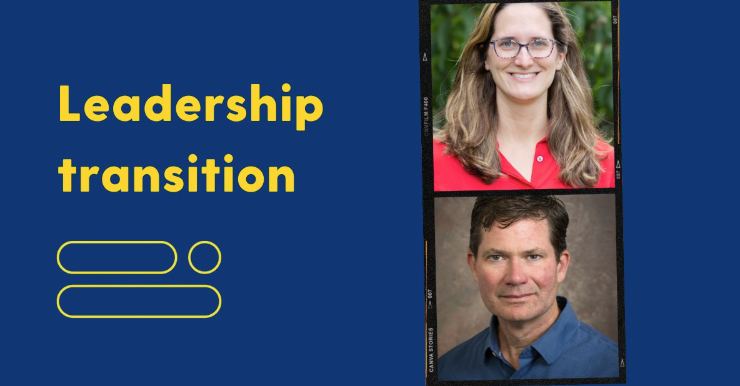
Degree Requirements for Statistics M.S.
Degree Requirements
The total credits required for the degree are 33, including 21 credits of Core Courses and 12 credits of Approved Elective Courses. If the student lacks background knowledge for one or more courses, prerequisite courses may need to be taken that do not count toward the degree.
Statistics M.S. Core Courses (21 Credits)
- STAT 601 - Probability Theory for Operations Research and Statistics (Credits: 3)
- STAT 602 - Mathematical Statistics (Credits: 3)
- STAT 603 - Statistical Computing and Optimization (Credits: 3)
- STAT 611 - Regression Analysis (Credits: 3)
- STAT 615 - Design and Analysis of Experiments (Credits: 3)
- STAT 617 - Multivariate Methods and Statistical Learning (Credits: 3)
- STAT 641 - Statistical Laboratory (Credit: 1)
- STAT 631: Introduction to Python (Credit: 1)
- STAT 632: Introduction to JMP Software (Credit: 1)
- STAT 633: Math Review for Statistics (Credits: 1)
- STAT 634: Introduction to R (Credits: 1)
Note: At least two credits are required from STAT 631-634, and they should be one credit each for separate topics.
Statistics M.S. Approved Elective Courses
Students must take four STAT 600 level courses (12 credits) selected from the following list of Approved Elective Courses*:
- STAT 612 - Advanced Regression Techniques Credit(s): 3
- STAT 616 - Advanced Design of Experiments Credit(s): 3
- STAT 619 - Time Series Analysis Credit(s): 3
- STAT 621 - Survival Analysis Credit(s): 3
- STAT 622 - Statistical Network Analysis Credit(s): 3
- STAT 674 - Applied Data Base Management Credit(s): 3
- STAT 675 - Logistic Regression Credit(s): 3
- STAT 664 - Statistics Internship Credits: 1-6
- STAT 668 - Research Project Credit(s): 3-6
- STAT 669 - Masters Thesis Credit(s): 3-6
*Note: a student may take at most 6 credits from a combination of STAT 664, 668 or 669.
Other Requirements
Students are expected to participate in StatLab and attend departmental seminars. They are also encouraged to attend the monthly meetings of the Delaware Chapter of the American Statistical Association (ASA); and other area professional meetings, such as the ASA Meetings.
Admission requirements
Begin assembling your required application materials as electronic documents before completing the online graduate application. Do not mail any documents. Applicants must submit all materials directly to the University Office of Graduate and Professional Education using the online admission process before admission can be considered.
Degree requirements
The total credits required for the degree are 33. If the student lacks background knowledge for one or more courses, prerequisite courses may need to be taken that do not count toward the degree.
Frequently asked questions
Answer: Yes, there is limited funding available for Fall enrollment. In general, a full Teaching Assistantship includes a full tuition waiver and stipend. In February, the graduate admissions committee will discuss the qualification of all applicants that apply before the funding deadline (February 2) and make recommendations about funding and admission. Any applicants who want to be considered for the department funding should submit their application before February 2.
Although the first year TA positions are limited, the chance for a student to get financial support in his/her second year is very high. In the last six years, 80% of our students received financial support in their second year.
Answer: Many of our students, usually beginning in their second year, are able to intern as statisticians at major corporations or other local businesses that have headquarters or major operations near the University of Delaware. Participating companies often include: Chase, Barclays, SallieMae and others. These companies start the interview/selection process in January or early February, selecting students to intern the following year.
All first year students are eligible to apply and submit their resumes after finishing one semester of courses. Students will be picked by the companies based on the students’ resume and interview performance. Students often get multiple interview opportunities. The selected students will usually sign a year long internship contract beginning in the summer after the first year. Sponsored students receive competitive stipends and important real world work experience.
Each year, the participating companies vary as does the number of interns hired. Since 2014, the average number of internship positions offered is 18, and for the year 2021/2022, three-fourths of eligible students received an internship offer.
Answer: It is possible to start the MS Statistics program in the Spring Semester, provided the student is properly prepared. Unfortunately, departmental funding is often limited due to the timing of our budget process.
Our graduate course offerings and curriculum are designed mainly for students starting the program in the Fall. Therefore, Spring enrollment is usually appropriate only for students who have already taken some graduate-level statistics coursework. See details in the sample curriculum for the MS Statistics program below.
Finally, only students who have successfully completed at least one semester in our program are qualified for the internship program. Therefore students who enroll in the spring often have to wait for their third semester to have interview opportunities, while the students enrolled in the fall will have the opportunity at the end of their first semester. In addition, some companies only consider students who can intern for one year. Therefore, the spring enrolled students may not be able to intern in those companies even if they are well qualified.
Course highlights
Graduate students learn how to analyze, interpret and assess the validity of logistic regression and generalized linear models, and various applied contexts such as medicine, marketing, risk management, and online learning. Professors introduce modern topics such as high-dimensional logistic regression with Lasso and logistic regression in nonparametric or semi-parametric settings (generalized additive model). In addition to binary or multi-categorical data, Poisson regression and Negative Binomial regression for count data analysis will be studied. The course will primarily use procedures in the SAS system to do data analysis. The course will also introduce R software packages for high-dimensional logistic regression and generalized additive models, two modern machine learning techniques.
This applied multivariate analysis and statistical machine learning course introduces a variety of statistical methods for multivariate analysis and machine learning, involving statistical computing mostly with R and Python. The course topics include:
Random vectors and random matrices,
Multivariate normal distribution,
MANOVA (Multivariate analysis of variance),
Principal component analysis (PCA),
Canonical correlation analysis (CCA),
Linear and Quadratic discriminant analysis (LDA and QDA),
Resampling methods including Cross-Validation (CV) and Bootstrap,
Regression and classification trees (CART),
Random forests,
Support Vector Machines (SVM),
Boosting methods,
Clustering analysis,
Online recommendation system,
Deep neural network,
Partial least squares, and
Sufficient dimension reduction.
This applied time series analysis course covers important topics in time series analysis, including the Box and Jenkins techniques of fitting time series data, ARMA models, ARIMA models, seasonal models, ARCH models, GARCH models, transfer function models, vector autoregression models, forecasting, frequency domain methods, recurrent neural networks, long short-term memory networks, gaussian processes and (hidden) markov models (time permitting). Professors focus more on methodology and data analysis than theory, involving an introduction to appropriate statistical packages in R and SAS software.
This course presents students with the basics of managing and summarizing data using the SAS System. Professors emphasize preparing data for analysis and creating attractive, readable reports for data summaries. Additionally, students will build the foundations and strategies to support future development of their SAS programming skills.
-

Get ready for Ag Day
April 18, 2024 | Written by Katie Peikes | Photos by Katie Young and Monica MoriakUD’s College of Agriculture and Natural Resources gears up for annual showcase for the community. -
Kali Kniel leads the charge in safe food practices globally
April 18, 2024 | Written by Nya WynnUniversity of Delaware faculty member Kali Kniel traveled to Geneva, Switzerland to participate in an expert committee meeting on viruses and food safety with other experts. Joint Food and Agriculture Organization/World Health Organization Expert Meetings on Microbiological Risk Assessment (JEMRA) committees are convened to review the state of science on particular topics and in turn provide information that is useful to global guidance, in this case to improve the control of viruses in food. The group ranked the most prevalent viruses transmitted through food and recommended how countries across the world could help combat outbreaks. -
Recovering the coast
April 16, 2024 | Written by Molly SchaferGraduate student Laura Taylor is testing a new approach to encourage coordination between adjacent homeowners who have become eligible for a flood-related buyout. Full participation in coastal buyouts can protect homeowners from repeated and severe flood risk and restore floodplain functionality. Working with UD Prof. Christina McGranaghan, Taylor conducts her economic experiments at UD’s Center for Experimental and Applied Economics (CEAE). Taylor is funded by the Delaware Sea Grant and a Graduate Research Enhancement Grant from Gerald J. Mangone Climate Change Science and Policy Hub.



